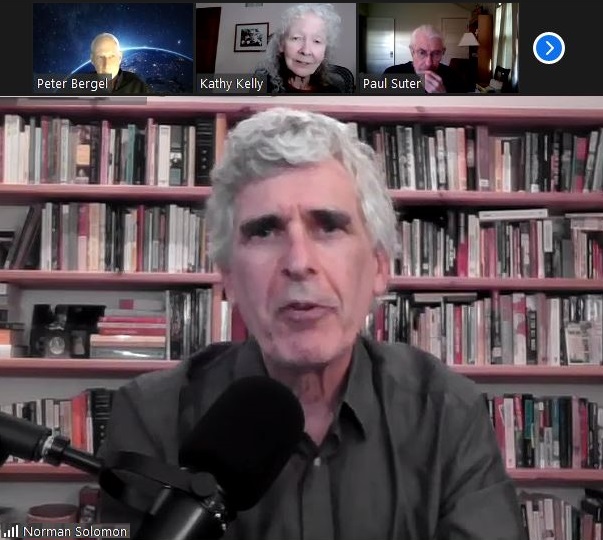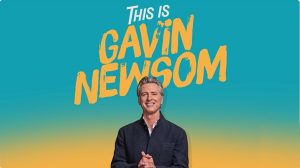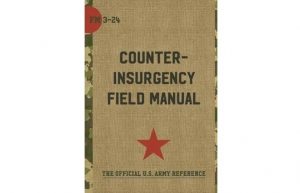Norman Solomon on sharing your message in the media: Build relationships
11 min read
How can activists share information through the mass media with the general public? In a discussion co-sponsored by KEPW on April 2, the author of the book War Made Invisible:
Norman Solomon: Ed Herman and Noam Chomsky wrote about what they called ‘Manufacturing Consent.’ And I think we see it in a lot of different venues. I just wrote a piece actually that’s on Common Dreams: On Friday afternoon, the Washington Post broke a story that President Biden had basically secretly approved billions of dollars worth of shipments of fighter jets and 500-pound bombs and 2,000-pound bombs to go to Israel. And Reuters verified it was factual.
[00:00:49] So I kept looking at the New York Times website: Saturday, no coverage, Saturday night, no coverage, Sunday, no coverage, Sunday night, no coverage. And so I contacted the managing editor of the New York Times and the question was: ‘Why? Why is the New York Times, the most influential and far-reaching media outlet in the United States, not reporting a single word about this revelation—which is a historic turn of events at a crucial time where there’s enormous debate and suffering about the arming by the United States of the Israeli government and the carnage, the slaughter, the mass murder that continues in Gaza as a result?
[00:01:47] Finally, there was a statement that came back from the New York Times, and I’m paraphrasing it: ‘The New York Times has covered with great detail and discernment for a decade the Israel-Hamas conflict, and the New York Times will continue to inform its readers about national, international policies.’ That’s the answer.
[00:02:08] It’s an instance of the arrogance of media power and the tremendous capacity for those who can turn on and off the spigot of public information to turn it off or to turn it on with disinformation and misinformation and distortion.
[00:02:26] And in the book War Made Invisible, the subtitle is How America Hides the Human Toll of Its Military Machine, the first chapter is titled, Omission and Repetition. And the essence of propaganda is repetition. It’s the code words, the catchphrases, the assumptions that are 24/7 propagated implicitly and explicitly. And the omissions, what is not provided in terms of information and analysis, the narrow range of perspectives.
[00:02:58] People organize, put a lot of time and energy, a lot of outreach. There’s an event, a public teach-in, a picket line, a rally, a march, civil disobedience, and the turnout is good, the messaging is strong, and the daily newspaper, the radio stations, the TV stations, nobody shows up. And to say that that’s frustrating is to put it mildly.
[00:03:25] It’s been said, and I think with some truth, that whatever issue we are most focused on day to day and preoccupied with, our second issue de facto needs to be media. Whether we’re talking about the R-G, the Oregonian, NPR, the New York Times—many different outlets that feed people with information, disinformation, omission every day—as activists, as organizers, it’s important for us not to basically throw up our hands and say there’s nothing that we can do.
[00:04:02] We have, I think, a lot of potential from the grassroots to more effectively reach people not only with general messaging, although that’s important, but very specifically, whatever kind of organizing we’re doing.
[00:04:17] I want to say a bit about some of the possibilities for overcoming the obstacles. The media, the mass media, even often what present themselves as public media, alternative media—many organizations, of course, feel strapped financially. Their resources seem in very short supply. The funding is low and erratic and so forth. And people make do, often very heroically, with what’s available.
[00:04:49] What we often leave to last or don’t include is a media department; by any other name, a media task force, a media collective, a media committee, whatever you call it. Often it gets short shrift and then if there’s breaking news and suddenly we have an opportunity to get some media attention because of what’s happening in the country or the state or the community, often we’re not set up to take advantage of that effectively.
[00:05:25] I think of the analogy of a train. You know, if a train is at a dead stop and then all of a sudden you want to get it moving, it’s really difficult. It’s slow. It takes a lot of push and it’s often very disappointing because by the time it’s rolling, it’s maybe too slow and too late. And I think that’s true about media operations.
[00:05:50] If we’re in an organization and there’s breaking news, or we have something coming up on even short notice, perhaps, and we’ve got to figure out who is covering what at the local daily paper, local weekly paper; how to reach people at the radio station, the TV stations.
[00:06:10] How can we build a relationship? How can we develop a template for news releases? What are their email addresses? What are their phone numbers? If we have to start to figure that out, or put it in place when something is about to happen, or there’s breaking news to take advantage of, to a large extent it’s already too late. We haven’t done the preparation. We haven’t done the groundwork. We’re starting back from square one where we should have been many squares beyond.
[00:06:40] So I really want to encourage a sort of a rethink of how organizations, how coalitions prioritize. And a lot of it is the databases and the processes, the templates, the capacity to reach media quickly. And it’s also about building relationships. And I know it it might sound like a cliché, but we need to have relationships with people that work there.
[00:07:05] Our news releases should be really well-edited. They should be concise. It shouldn’t be five pages. It should be one or two pages, really clearly how people can be contacted—more than one person. Phone numbers, hopefully text numbers, email addresses. And if the phone numbers and email addresses are on there, we need to check them when the news releases go out.
[00:07:28] We shouldn’t assume that because we sent the news releases out that we have done that outreach job. Yes, occasionally it might be annoying to somebody on a news desk to get a confirmation phone call, but if you don’t already have an acknowledgement from an email, which you probably haven’t, again, building those relationships is really important and confirming that at least it registered somewhere—somebody who’s a desk editor, an assignment editor, perhaps a reporter—that that person at least saw it, that something’s happening. It’s what you sent.
[00:08:04] One other aspect that I want to mention is about the opinion sections of newspapers, whether dailies or weeklies, and that is that we often have the frustration of even if there’s news coverage of an event or a speech or whatever, maybe we’re not too thrilled with how it was framed: the quotes that were taken; the paraphrases; the characterizations. Writing an op-ed piece or even a letter to the editor is an end-run around that kind of problem.
[00:08:34] There are studies that say in a daily newspaper, the most widely-read content is the Letters to the Editor. And even if our letters don’t get in, if a bunch of people are sending those letters, then if it has a similar point of view, it increases the chances that one or more of those letters will be published, even if ours is not.
[00:08:56] And then an op-ed, I think, is still something that is generally underutilized. To have 600 words or 800 words on the opinion page of a daily paper or weekly paper, it really cuts through because it’s finally your voice. It’s finally the voice that’s unadulterated, that says exactly what you want to say.
[00:09:19] It’s really important to see what the length of the usual pieces are. They’re usually 600, 700, 800 words. And stick to them, and stick to that length. Paragraphs should be short. You shouldn’t be writing a 300- or 400-word paragraph. It’s just a sort of a rule of thumb, the theory being that readers don’t like to look at a huge paragraph. They like shorter ones.
[00:09:44] And of course, just to make it as concise as possible. Have your bio at the bottom and so forth. And don’t hesitate to politely bug the opinion page editor if she or he rejects it. Ask why, see if you can come back with something else and so forth.
[00:10:03] You can use it if it’s published as a building block. There are a lot of talk shows on, locally and regionally, and that can be a springboard if you have a piece in the newspaper or on a website that would be taken somewhat seriously by the producers. Keep going at the talk shows.
[00:10:24] If they don’t hear from us, and they don’t keep hearing from us, then they’re going to respond to what they find most accessible. And we tend to forget that they’re more and more short-staffed, and in many ways we need to do the journalists’, the producers’ work for them. That’s why a well-done news release cuts down on their time. They’re willing to run with it because it means less time for them.
[00:10:53] The same thing goes with the producers of talk shows. If it seems timely, if perhaps it’s pegged to an upcoming anniversary, or just related to breaking news, it’s much more likely that they’re going to see, ‘Hey, this is something that will work for our show.’ And especially for TV and radio, if you can email a sound bite or a link to your previous appearance or something like that, that’s all to the good.
[00:11:21] We often forget too that we have a sort of winning argument sometimes if it’s a local outlet, because we’re local. For instance, Ashland (Daily) Tidings, you know, people are really writing progressive pieces and they’re saying, ‘We live around Ashland. We’re from Southern Oregon. We’re local people.’ So it doesn’t have to be a confrontation, but it’s explicit or implicit: ‘We live in this community. This is a media outlet that depends on and ostensibly serves the community. So our voice should be in first place.’
[00:11:57] Zondie Zinke (Community Alliance of Lane County): I wanted to just let people locally know that I was just hired by CALC, for the Reimagining National Security campaign, and if you are all very invested in anti-militarism and if you want to reach out and, guide me or let me know your cares or insights or anything, I’ll put my CALC email in the chat.
[00:12:21] I’ve heard this, and then it also just fits with what makes sense to me, that organizing locally has greater potential to be effective than far-reaching organizing. I wanted your insight on that, whether that sounds right to you.
[00:12:37] And then also, in terms of militarism, it seems to me that local-level policing is all part of the same picture. And same with climate catastrophe. I don’t just mean the militarization of police, but that the U.S. is a military occupation.
[00:12:53] We can understand how oppressed we are when, for example, what happened on a local level during the uprisings of 2020: The counterinsurgency tactics by the police, by our city councilor, mayor, and city manager, and even to some degree by the courts. But that’s something that’s another thing. The counterinsurgency tactics when we have uprisings here are really strong, and it seems to me that we do a disservice to the whole picture if we’re not looking locally at the same time as we are nationally and internationally.
[00:13:33] Norman Solomon: Well, there’s so many layers to that. And we, of course, are not anywhere near where we want to be in this country, or even as movements, not anywhere near where we wish we were, but I do think that to generalize in the realm of militarism and challenging it, national organizing is really in its infancy. And we wish it was grown up, but we just are not coordinating in a way that affirms and gets our strength from grassroots organizations.
[00:14:14] And if you just look at the electoral arena, the right wing has recognized that everybody in Congress is elected from somewhere in terms of the House. Everybody has a local district. And so to your point, I think in part, local is really crucial, but only local isn’t sufficient either.
[00:14:35] And whether it’s about militarization or say the 1033 program where the Pentagon’s weapons are given/gifted to local police forces and they can keep them if they keep using them against people, whether it’s the electoral arena per se, there’s such a disconnect compared to what is needed.
[00:14:57] And I think this is because we’re too damn nice. I’m not talking about being rude. I’m certainly not talking about being violent. I’m talking about being emphatic. I’m talking about what King called ‘the marvelous new militancy’ that was necessary. We should be confronting these members of Congress. There’s just a tendency for us to be so grateful for the things that our member of Congress does that we do like, that we give them a pass, and we think it’s too ungrateful or impolite to confront them, and they’re fueling the war machine.
[00:15:39] I mean, a great example is Jim McGovern, great on many issues. He has led the way for the discharge petition so that more weaponry can be sent to Ukraine and Israel. And so we’re supposed to not confront him because he’s done some good things. So it’s the local and national, we have so much work to do. The militarists, the corporatists, the right wing, they’re very well organized. We have a lot of catch up to do.
[00:16:07] John Q: He was asked about new and innovative tactics.
[00:16:11] Norman Solomon: I have thought lately about surveys that showed that the movement against the Vietnam War never had majority approval. But over the years, most people turned against the war, the public at large. There’s maybe a takeaway there, that we ought to be willing to take some risks that might cause some negative reaction toward what we do, but spotlight what we want to illuminate as requiring change.
[00:16:48] So in that sense, the basics are basic. And I think it was Woody Guthrie who said, ‘Any damn fool can be complicated.’ The status quo is fundamentally antithetical to humanity, and maybe we need to become more basic and just keep going at it.
[00:17:10] It’s going to take all of us who are engaged in activism doing many, many different things, some old, some new, some tried and true, some experimental, to really give this military-industrial complex the challenge that humanity deserves.
[00:17:31] John Q: Norman Solomon, in a Zoom session co-sponsored by KEPW, encourages activists: Develop relationships with local media contacts. A letter or op-ed in the local newspaper can lead to more media interest, and more coverage, including talk shows.







